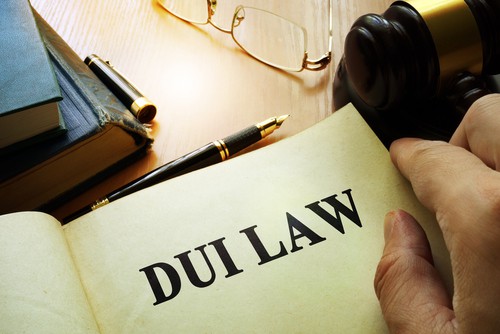
Being charged with a DWI (driving while intoxicated) can be stressful and confusing. When you get your first DWI, you could face:
- Jail time
- A significant fine
- Suspension of your driver’s license
In addition to these penalties, you may experience long-lasting effects of your conviction that negatively impact your quality of life. Successfully defending yourself from a possible conviction could save you money, jail time, and future headaches.
Consequences for a First-Time DWI
In Texas, driving while under the influence of alcohol or drugs is termed “driving while intoxicated”, also known as DWI. Per Texas Statutes 49.04, a first-time DWI is generally considered a Class B misdemeanor. If you are convicted of a Class B misdemeanor, per The Texas Politics Project, you could face:
- As many as 180 days in jail
- A $2,000 fine
According to the Texas Department of Public Safety (TxDPS), you could also be ordered to:
- Forfeit your license via a suspension of up to 2 years
- Complete an alcohol education program, which may be either 12 or 32 hours long
- When you are able to drive again, install a device in your vehicle which checks your breath for traces of alcohol before allowing the vehicle to start
- Serve probation after you have completed some or all of your jail time, or in lieu of jail time
You may face even steeper penalties if your arrest consisted of aggravating circumstances. For example, if you had a child in your vehicle at the time of your DWI arrest, you may be facing a state jail felony charge of driving while intoxicated with a child passenger, per Texas Statutes 49.045. A conviction for this charge may result in:
- Between 180 days and 2 years in state jail
- A $10,000 fine
- A felony on your record
Other circumstances which may enhance your DWI charge from a Class B misdemeanor to a Class A misdemeanor or greater include:
- You were involved in an accident, especially if the accident caused a bodily injury to another party
- You were involved in an accident that caused death
- You provided a breath or blood sample that registered a blood alcohol concentration (BAC) of .15 or greater
These legal consequences can be stiff, and they may come in addition to court costs, legal fees, and other expenses. A conviction may appear even more expensive when you consider that its effects could range beyond your period of incarceration, probation, and other court-ordered punishments.
Secondary Consequences of a DWI Conviction
As if the legal ramifications of a DWI conviction (fines, jail time, prison time, license suspension, probation, education courses) were not daunting enough, you could find that being convicted of your first charge of driving while intoxicated haunts you in several additional ways.
It is possible that (should you end up with a conviction for driving while intoxicated) you could face:
- Difficulty obtaining housing, especially in competitive marketplaces
- Difficulty qualifying for loans, including a mortgage that you may need to purchase a home
- Discrimination in any venue where your character or responsibility may come into question, such as family court
- Higher insurance premiums, particularly for automobile insurance—which you are legally required to have in order to drive
- Discriminiation in the job market, as a DWI conviction may be available for the public to view on a basic background check
- A general hit to your reputation
It is possible that these secondary consequences of a DWI conviction may be even more of a burden than the direct legal punishments levied against you. These possible adverse outcomes provide even greater reason for you to fight your pending charge of driving while intoxicated.
A Lawyer Will Assist in Your Defense
If you are facing a charge of driving while intoxicated, hiring a lawyer may allow you to:
- Have somebody who practices law for a living, on your side
- Focus on other matters while your lawyer works on your defense
- Have a second set of eyes and ears to assist in your defense
More specifically, a lawyer may:
- Assess the facts and evidence in your case and provide an honest assessment of how strong (or weak) the case against you is
- Advise you on your options for fighting the case, such as exploring a plea agreement, taking your case to trial, or pushing for a dismissal
- Speak with the prosecutor in your case to probe their willingness to agree to a plea agreement
- If necessary, defend you in a trial setting
- Conduct any appeal that is necessary
- Seek the outcome that minimizes harm to your freedom and reputation
Speak with a lawyer to find out more about how a DWI attorney may serve you.
Call Our Team at the Law Offices of Randall B. Isenberg Today
Lead attorney Randall B. Isenberg has witnessed cases from all sides of a courtroom, as he has over 30 years’ experience as a former prosecutor, state district judge, and now a defense attorney. Call our team at the Law Offices of Randall B. Isenberg today at (214) 696-9253 to learn more about what happens when you get your first DWI and how we may help defend you from your charge.










